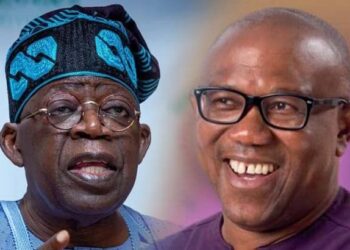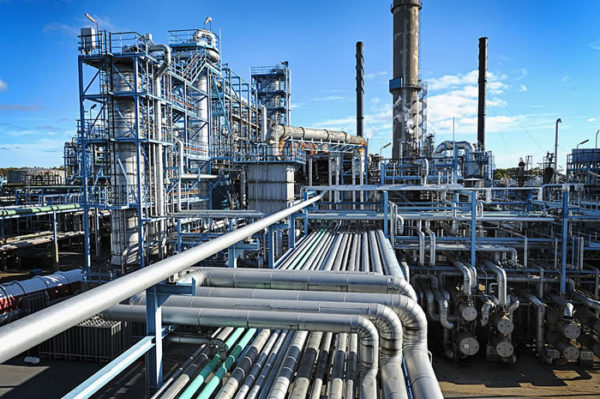The Economist Intelligence Unit (EIU), has predicted that the value of Nigeria’s currency, Naira will continue to depreciate, gradually falling to an official rate of N470 to $1 by the end of 2023.
In a report it titled: “Things to Watch in Nigeria in 2023”, the organisation stressed that the pressure on the local currency may continue to increase, further negatively impacting the current N445 rate.
The EIU is the research and analysis division of the Economist Group, providing forecasting and advisory services through research and analysis, such as monthly country reports, economic forecasts, country risk service reports and industry reports.
The EIU also said it has now revised down its real Gross Domestic Product (GDP) growth estimate for 2023 to 2.8 per cent from 3.1 per cent, owing to tighter credit conditions, recent floods and widening insecurity.
It added that early 2023 is set to be a testing period for stability of the currency regime, explaining that an announcement by the Central Bank of Nigeria (CBN) in October immediately triggered a naira sell-off, as holders of old banknotes rushed to convert them to hard currency.
With foreign exchange scarce on the parallel market and bureau de change operators preferring to hold rather than sell, the black-market exchange rate, it said, has been extremely volatile, depreciating to more than N800/$1 in early November, before recovering to N750/$1 in mid-month and sliding back to N780/$1 a week later.
“The currency redesign will continue to be a source of pressure on the naira until January, when existing banknotes lose their status as legal tender, and the election in February could also unleash speculative forces.
“A devaluation cannot be ruled out, but as these events pass currency pressures should ease. We now expect the naira to end 2023 at about N470/$1, from N444/$1 currently, with the movement being one of gradual depreciation.
“ That of course implies a wide and enduring spread between the official and the parallel market rates that invites illicit arbitrage. Even if there is no devaluation, the exchange-rate regime will remain dysfunctional, with the official rate propped up by a range of import controls and the currency appreciating strongly in real effective exchange rate terms,” the report said.
Assuming no devaluations of the naira, EIU made a forecast that average consumer price inflation will slow to 15.1 per cent in 2023, from an estimated 19.3 per cent in 2022, stressing that it expects the central bank’s policy rate to peak at 17 per cent either in early 2023.
Hard currency, it explained, remains in short supply even as the CBN is bent on curbing the parallel foreign exchange market.
“Inflation is expected to remain in double digits and monetary conditions will be tight, with the central bank’s policy rate expected to peak at 17 per cent by end-2022 or early 2023, and to be maintained at this level throughout the year,” it stressed.
Opining that insecurity has worsened over 2022, mainly because of the multitude of separate crises facing Nigeria, which spreads the army too thin, the report stressed that an era of reform following the election is expected to begin, but slowly at first, with petrol subsidies expected to be reduced, partly relieving fiscal strains.
“Interest rate rises should begin to tame inflation, but economic growth will slow. High global energy demand should make Nigerian oil assets more attractive, and a recent oil sector law will be tested with respect to governance of the industry,” it said.
According to the report, extreme poverty continues to drive criminality, with the state getting smaller, making it easy for criminal groups to fill the void.
It predicted that Nigeria’s federal revenue/GDP ratio is expected to remain at less than 5 per cent in 2023.
The report posited that an underpaid, often unmotivated and exhausted military continues to struggle against increasingly well-armed bandits and oil thieves.
The run-up to the 2023 election, it explained, has prevented the government from committing fully to reforms it had been endorsing during the middle of Muhammadu Buhari’s second term.
One of these reforms, it noted , is ending petrol subsidies, the bill for which has caused the fiscal deficit to balloon in 2022. “We estimate a shortfall of 5.1 per cent of GDP, the largest for a generation.
“Petrol price regulation is officially scheduled to end in June 2023, and our view is that a decision will be made to scale down the subsidy bill by raising pump prices from July,” it pointed out.
At roughly N195 ($0.45), the ninth cheapest in the world, the EIU said that in neighbouring Benin (to where Nigerian petrol is often smuggled) a litre is two and a half times that price.
Cutting the bill, it predicted, will invite a severe backlash from unions and the wider public, and be a serious security risk, but added that there is bipartisan political recognition that petrol subsidies are unsustainable and that, without action, Nigeria could be on a path towards debt distress.
“The state is unable to meet essential spending on debt service, defence and salaries or to commit funds towards infrastructure without resorting to more (and increasingly costly) borrowing.
“The tax system is a legacy of past periods of high oil production, which no longer applies. The value-added tax (VAT) rate remains low by international standards, at 7.5 per cent, but generates a third of non-oil revenue as most firms and workers are outside the tax net, with there being little to no culture of paying.
“The federal revenue service is inefficient, and low governability creates a set of additional challenges. The 2023 budget—being a pre-election package—omitted any mention of tough choices on tax,” the report highlighted.
The report pointed out that a key potential new reform to watch out for in the power sector is the likely unbundling of the currently centralised electricity transmission infrastructure, which it said has been the cause of repeated national power shutdowns for most of 2022.
In oil and gas, the EIU said there are already warnings that the oil and gas business environment will remain excessively dominated by Nigerian National Petroleum Company Limited (NNPC).
The near-term oil sector, it said, depends on the restoration of security above all else.
ALSO READ:
“We expect production of 1.22 million bpd for the year. Even as oil prices subside from an estimated average of $101.1/barrel in 2022 to $89.9/b in 2023, this level of production will be sufficient to generate a current-account surplus.“A major development coming on stream in 2023 is the Dangote refinery, which executives have said is already complete. The 650,000 bpd facility could eliminate the whole of Nigeria’s fuel requirement, but only if petrol prices in Nigeria are at least cost-reflective.
“Otherwise the vast majority of output will be exported. Lower fuel imports (which make up 15 per cent of the total import bill) should help to stabilise the foreign-exchange market, assuming petrol prices are adjusted or fully liberalised from mid year,” it said.












